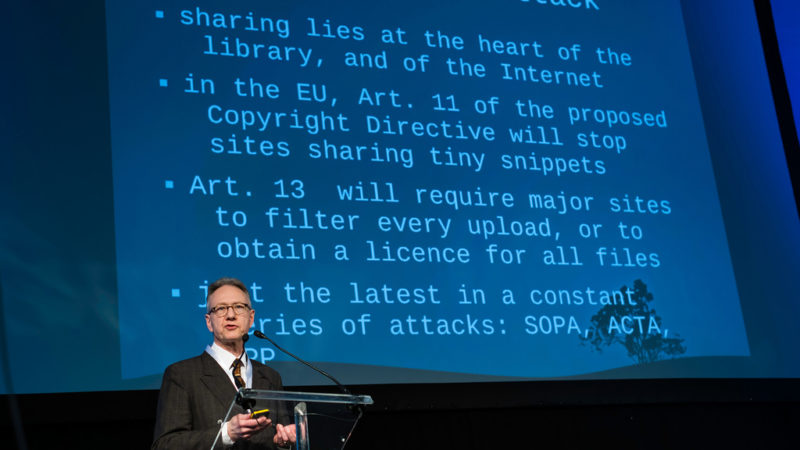Looks like we're not too keen on taking back control...

Members of the European Parliament have today voted to press ahead with a controversial copyright crackdown in what’s been deemed ‘massive blow’ for internet users.
The directive is expected to lead to the introduction of ‘filters’ on sites such as YouTube, which will automatically remove content that could be copyrighted. It will also affect social media sites, leading it to be dubbed a ‘meme ban’.
While entertainment footage is most likely to be affected, academics fear it could also restrict the sharing of knowledge, and critics argue it will have a negative impact on freedom of speech and expression online.
The move will also allow media firms to charge content aggregators like Google for publishing extracts of articles in its news feed.
EU member states will have two years to implement the law. Interestingly though – despite Brexit – the regulations are still expected to be implemented by the UK.
The motion to vote on amendments to the European copyright directive – some of which sought to protect free speech – was rejected by only five votes 312 – 317, with 24 abstentions.
That could only happy because of the decision of UK Tory MEPs to vote against the amendments even getting a hearing. Removing controversial Articles 11 and 13 from the text was therefore scuppered.
In response to a UK epetition against the changes earlier this year, the government said:
“We support Articles 11 and 13 [the key controversial tenets of the new rules], which seek to ensure creators and producers are rewarded when their works are used online, but agree they must include safeguards for freedom of expression.”
Some safeguards were indeed subsequently included in the EU rules – meaning the government is likely to implement the proposals.
South West Green MEP Molly Scott Cato said:
“The new copyright laws that Parliament voted for today threatens the free internet as we know it: algorithms cannot distinguish between actual copyright infringements and the perfectly legal re-use of content for purposes such as parody.
“This means the loss of much of the creativity on the internet we currently enjoy. We strongly support the goal of fair remuneration for artists and cultural creatives, but this deal will rather protect the corporate publishers of their work. Until we have the right deal we believe we should not risk the freedom of the internet that allows creativity to flourish.
“Many people have contacted me to raise deep concerns about this legislation. I am hugely disappointed that so many MEPs have let them down.”
Catherine Stihler, chief executive of the Open Knowledge Foundation, said:
“This vote is a massive blow for every internet user in Europe. MEPs have rejected pleas from millions of EU citizens to save the internet, and chose instead to restrict freedom of speech and expression online.
“We now risk the creation of a more closed society at the very time we should be using digital advances to build a more open world where knowledge creates power for the many, not the few.”
Stihler urged voters to back candidates who support repealing the rules in the elections this June – meaning, bizarrely, the rules could eventually be repealed in Brussels but maintained by the UK government.
“While this result is deeply disappointing, the forthcoming European elections provide an opportunity for candidates to stand on a platform to seek a fresh mandate to reject this censorship,” Stihler said.
The changes are testament to the collective power of the EU over tech giants. Platforms which operate in any part of the EU will have to abide by the regulations, which means they could apply in the UK whether we’re in the EU or not.
Equally, the UK government is likely to formally adopt many other EU regulations itself to ensure it is in line with the rest of the continent.
On Monday, Raffaella De Santis, associate at law firm Harbottle & Lewis, said: “Whether the UK leaves Europe with or without a deal, it’s hard to see that it would not follow Europe’s lead on this, whatever the respective outcomes of the EU vote tomorrow and Brexit.”
Looks like – when given the option – we’re not that keen on ‘taking back control’ after all.
The UK’s Intellectual Property Office was not available for comment.
Josiah Mortimer is Editor of Left Foot Forward. Follow him on Twitter.
To reach hundreds of thousands of new readers and to make the biggest impact we can in the next general election, we need to grow our donor base substantially.
That's why in 2024, we are seeking to generate 150 additional regular donors to support Left Foot Forward's work.
We still need another 124 people to donate to hit the target. You can help. Donate today.



